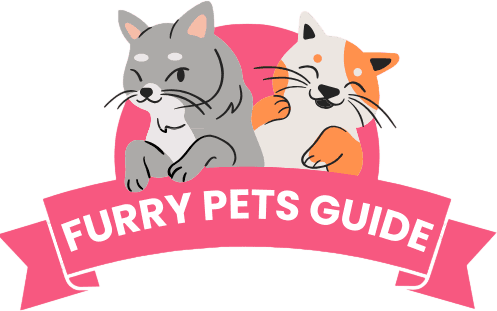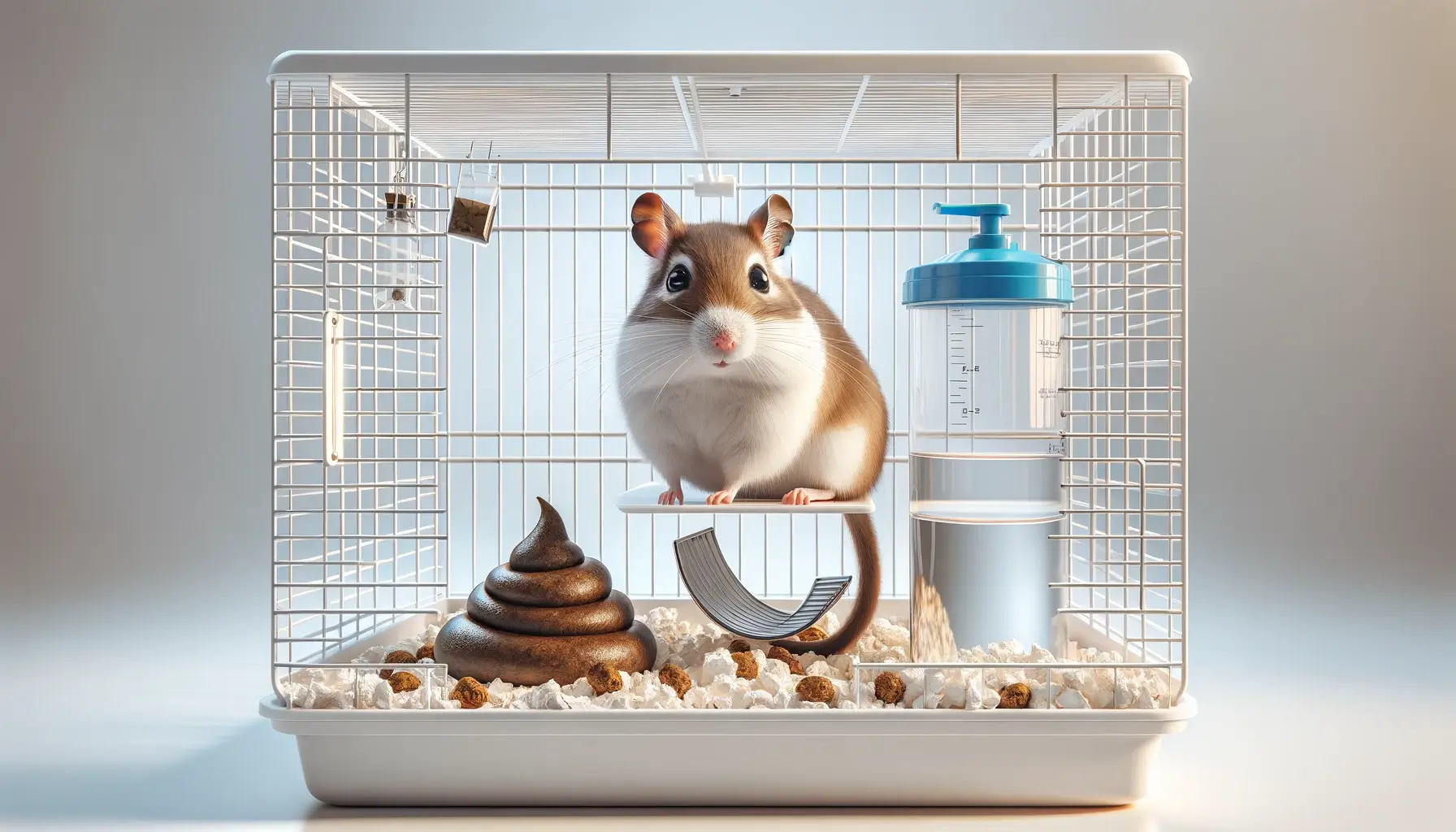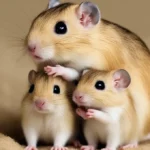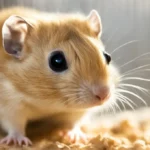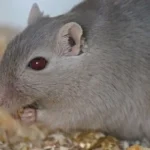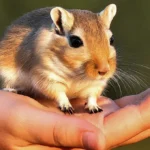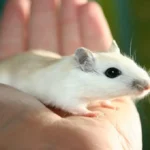Gerbils are fascinating creatures, known for their playful nature and minimal maintenance requirements, making them ideal pets for both adults and children alike.
However, like any pet, understanding their health and habits is crucial for ensuring they lead a happy and healthy life. One aspect of gerbil care that often goes unnoticed but is vital to their well-being is their pooping habits.
This guide delves into the intricacies of gerbil digestion, poop habits, and the behavioral aspects surrounding their toilet routines.
Understanding Gerbil Digestion and Poop Habits
Gerbil Digestion Basics
Gerbils have a fast metabolism and an efficient digestive system that allows them to process their food quickly. These small, energetic creatures typically produce 5 to 20 small, pellet-like feces each day.
The consistency and frequency of their poop can offer invaluable insights into their health. A healthy gerbil’s poop is firm, dry, and odorless, a sign of proper digestion and hydration.
Frequency of Pooping
The number of times a gerbil poops in a day can vary based on several factors, including diet, stress levels, and overall health. While it’s normal for a gerbil to poop a few times daily, significant deviations in poop frequency or appearance can indicate health issues.
For instance, a sudden increase in the number of pellets or a change in their consistency could signal stress or dietary problems.
Gerbil Poop and Health
Monitoring your gerbil’s poop is a simple yet effective way to keep tabs on its health. Healthy gerbil feces are small, hard, and dark brown. Any changes in color, consistency, or smell can be early warnings of health issues.
Loose, watery, or unusually smelly poop warrants immediate attention, as these could be signs of diarrhea or other digestive problems.
Behavioral Aspects of Gerbil Pooping
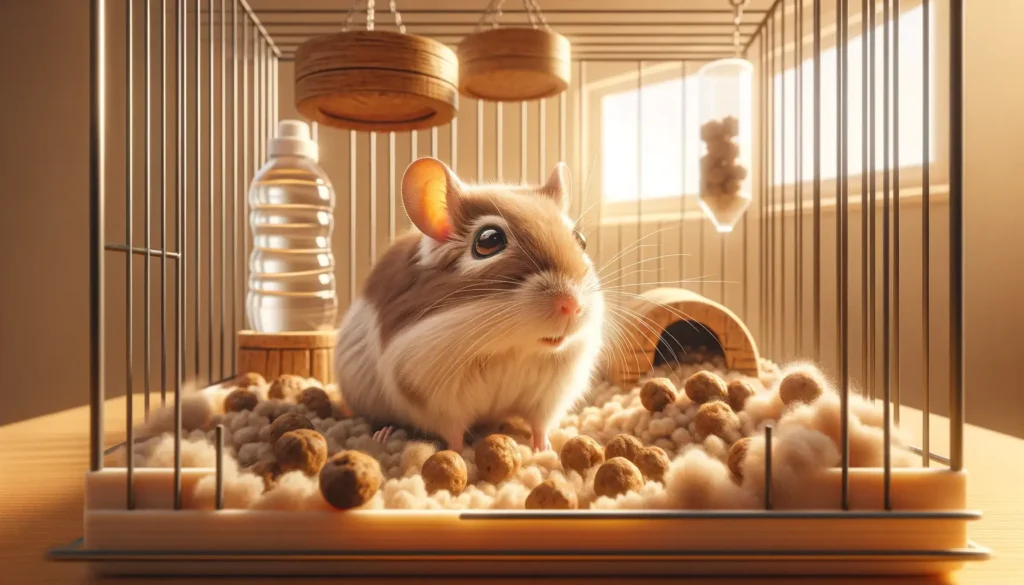
Designated Pooping Areas
Gerbils are naturally clean animals and prefer to use a specific area of their enclosure for pooping. This behavior helps keep their living space clean and reduces the risk of contamination.
If you notice your gerbil pooping outside its designated area, it could be a sign of stress or discomfort. Regularly cleaning their enclosure and providing a stable, peaceful environment can help maintain their toilet habits.
Stress and Pooping
Stress significantly impacts gerbil pooping habits. A stressed or scared gerbil may poop more frequently and outside its usual spot. Common stressors include changes in the environment, loud noises, and the presence of other pets.
Observing your gerbil’s behavior and making necessary adjustments to its living conditions can help mitigate stress-related pooping issues.
Gerbils Pooping on Owners
It’s not uncommon for gerbils to poop on their owners during handling. This behavior is usually a response to fear or excitement. To minimize the chances of this happening, try to create a bond with your gerbil through gentle and consistent handling.
Understanding that this behavior is not out of malice but a natural response to their emotions can help foster a stronger relationship between you and your pet.
The Intriguing World of Gerbil Coprophagy: Understanding and Health Implications
Coprophagy: A Normal Gerbil Behavior
In the fascinating world of gerbils, a behavior known as coprophagy, where these animals eat their own poop, plays a crucial role in their health. While it might seem odd or even unsanitary to us, this behavior is perfectly normal and beneficial for gerbils.
It allows them to extract undigested vitamins, minerals, and nutrients from their feces, essentially giving them a second chance to absorb essential dietary components.
This process is particularly important for digesting tough plant matter, which forms a significant part of their diet in the wild.
Understanding this behavior is vital for any gerbil owner, as it highlights the importance of a balanced diet in ensuring your pet’s digestive system functions correctly.
If you observe your gerbil engaging in coprophagy, rest assured, it’s a sign of normal, healthy behavior rather than a cause for concern.
Health Implications of Gerbil Poop: When to Consult a Vet
Signs of Diarrhea and Illness
Gerbil owners should be vigilant about changes in their pet’s poop, as these can be early indicators of health issues. Healthy gerbil poop is small, hard, and dark in color. Any significant changes, such as the presence of loose, watery stools, or a noticeable odor, could indicate diarrhea or other digestive problems.
These symptoms can quickly lead to dehydration and serious health complications if not addressed promptly.
Preventive Measures
To prevent health issues related to poop, it’s crucial to maintain a balanced diet for your gerbil, including proper hydration and a clean living environment. Regularly monitoring your gerbil’s poop can help you catch and address potential health issues early.
If you notice any concerning changes, consulting a veterinarian who specializes in small animals is the best course of action. They can provide guidance and treatment to ensure your gerbil remains healthy and happy.
Maintaining a Clean Gerbil Environment: Tips for a Happy Home
Cleaning the Gerbilarium
Keeping your gerbil’s living environment clean is essential for its health and well-being. Regular cleaning, at least once a week, helps prevent the buildup of harmful bacteria and keeps odors at bay.
During cleaning, remove all poop and soiled bedding, and consider designating a specific area of the enclosure for your gerbil to use as a bathroom. This not only makes cleaning easier but also helps maintain your gerbil’s natural behaviors.
Managing Poop to Prevent Odors
To minimize odors and maintain a hygienic environment, use absorbent bedding and spot-clean the cage daily. Providing a sand bath for your gerbil can also help, as it encourages natural grooming behaviors that keep their fur clean and reduce the spread of waste.
Additionally, keeping a small scoop handy in the cage area can streamline the removal of poop and soiled bedding, making daily maintenance a breeze.
FAQs
How often should I clean my gerbil’s cage?
To ensure a healthy and comfortable environment for your gerbil, it’s recommended to perform a spot clean daily, removing any visible poop and soiled bedding.
A more thorough cleaning, involving the removal and replacement of all bedding and a deep clean of the cage, should be done every 3-4 weeks.
Regular cleaning not only prevents unpleasant odors but also keeps your gerbil healthy by reducing the risk of diseases.
Is it normal for gerbils to eat their poop?
Yes, it’s perfectly normal for gerbils to engage in coprophagy, or the eating of their own poop. This behavior allows them to extract additional nutrients and vitamins that weren’t digested during the first pass through their digestive system.
While it might seem unusual to us, it’s a common and healthy behavior among many rodents, including gerbils.
What does it mean if my gerbil’s poop changes color or consistency?
Changes in the color or consistency of your gerbil’s poop can be indicative of health issues. Healthy gerbil poop is typically small, hard, and dark brown. If you notice loose, watery, or unusually colored poop, it could be a sign of dietary issues, stress, or illness.
Light-colored or soft stools might indicate a lack of certain nutrients or possible dehydration. If you observe any concerning changes, it’s best to consult with a veterinarian to rule out any potential health problems.
Conclusion
In conclusion, understanding the nuances of your gerbil’s pooping habits offers invaluable insights into their health and well-being. From recognizing the significance of coprophagy to identifying signs of potential health issues through changes in poop, this guide underscores the importance of attentive care.
By maintaining a clean environment, monitoring their diet, and staying vigilant for any changes, you can ensure your gerbil leads a happy, healthy life, solidifying the bond between you and your delightful little companion.
